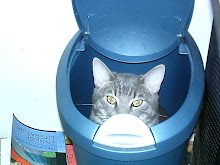I love the English language. I love that it's difficult, I love all of the words, I love that there are so many forms of the language. All around, I think it's a great thing. However, having an English degree and working as a proofreader, I can't help but notice the language is being absolutely slaughtered. I don't know if it's because of technology, because kids/people just don't think it's important, because teachers are so horribly underpaid and schools are understaffed, or a combination of all of that. I am just so amazed that people make these simple grammar mistakes over and over and over.
I used to joke that I wanted to become a grammar super hero of sorts. While that isn't really a possibility (or is it?!) I wanted to put together a very quick and concise list of a few common grammatical errors and explain why they are errors and simple tips to remember the correct usage. I beg of the readers to check it out and maybe share with a grammatically challenged friend.
(I'd like to point out that no one is immune from grammatical errors. Even those of us who enjoy the subject make a mistake now and then. I'm really talking about the repeat offenders who don't realize or care about their mistakes.)
Use the proper form of homonyms (words that sound the same but are spelled differently). This is a very common mistake. I think this is because a lot of people remember learning the difference and know there are special rules. But since they can't remember completely, they try to do what they think is correct. This mistake will not only misconstrue the meaning of a sentence, but it also makes the user look uneducated.
- To - A preposition, usually used to express motion I am going to the store.
- Too - Another word for "also" I would like an ice cream cone, too.
- Two - The number 2 spelled out I need to buy two ice cream cones.
- Your - Possessive version of "you" Your dog ran away
- You're - Contraction of the words "you" and "are" You're going to work all weekend
- Their - Possessive version of "they" Their car has two doors
- There - A state, condition, or placement There were seven balloons over there yesterday
- They're - A contraction of the words "they" and "are" They're buying balloons and candy
- Then - Usually used to indicate time or a consequence If you eat worms then you are going to be sick
- Than - Used in comparison I can run faster than Jimmy
- Lose - To not win I won't place cards because I will lose
- Loose - The opposite of tight My shoes are loose (Think of it this way: If you add an extra
"o" to something it will get bigger and more loose.)
- It's - A contraction of the words "it" and "is" (does not indicate possession) It's going to snow today
- Its - Possessive form of "it" The cat hid to care for its injured paw
Apostrophes have two main uses:
- To indicate possession Allison's dog ran away
- To indicate a letter (or letters) have been removed, as in a contraction I can't help you (Can't is a contraction, it combines the words "can" and "not." The apostrophe is put between the "n" and "t" to show that the letters "no" have been omitted.)
- Could care less - the correct phrase is "Couldn't care less." Think about it, if you could care less then you must actually care a little bit.
- All intensive purposes - The correct phrase is "All intents and purposes." I really can't explain it, just that when you break it down and think about it, the correct phrase just makes sense.
- Low and behold - The correct phrase is "lo and behold." While the word "lo" is archaic and not really used, that is the correct spelling of the saying.


1 comments:
I really like this post! It's strange to think about what is and isn't considered correct grammar these days. To me, it seems like texting grammar is more accepted than correct English. It's sorta sad to think that one day everyone might be writing in acronyms and texting because we've lost our knowledge of correct English.
Post a Comment